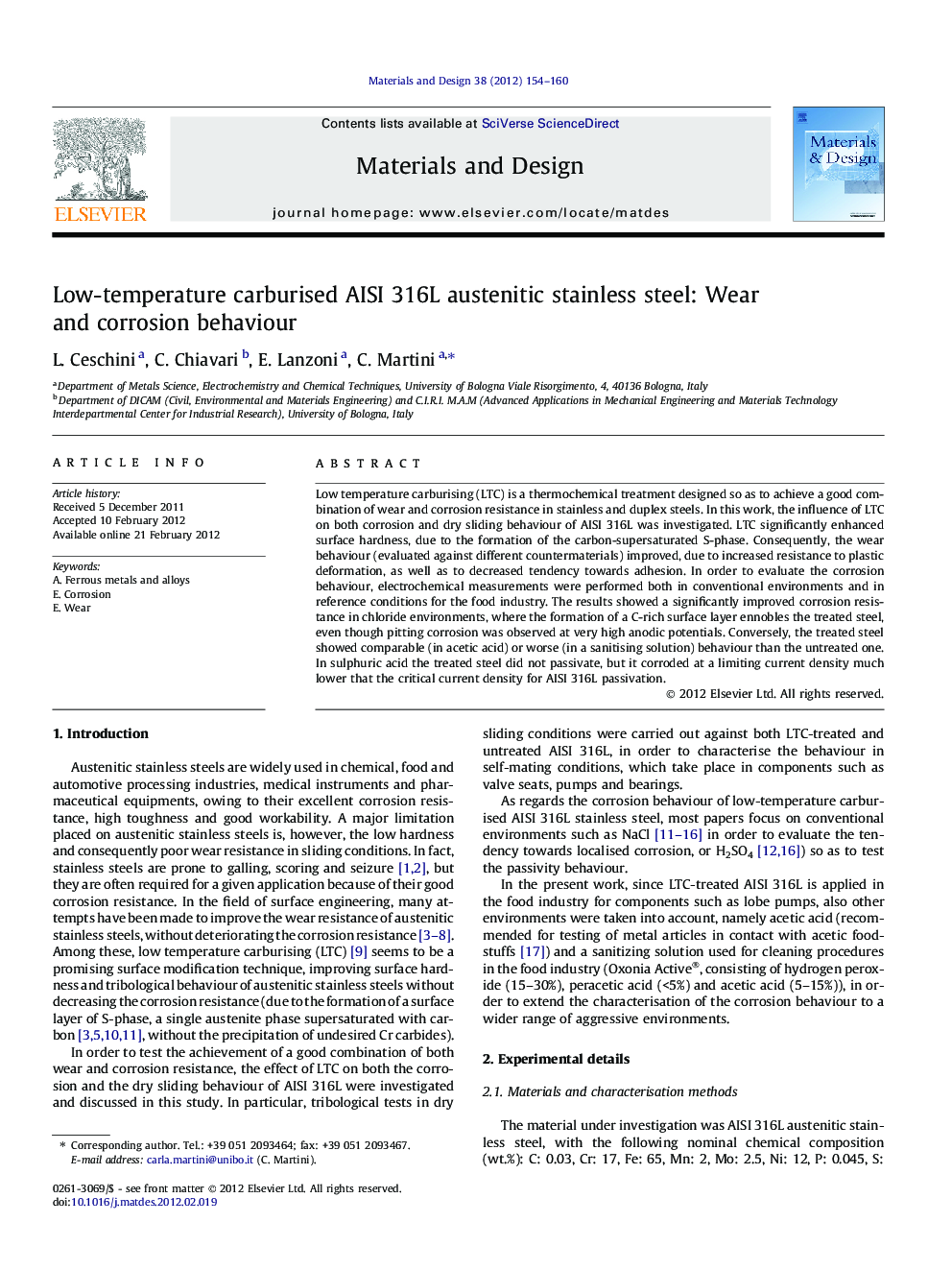| Article ID | Journal | Published Year | Pages | File Type |
|---|---|---|---|---|
| 830726 | Materials & Design (1980-2015) | 2012 | 7 Pages |
Low temperature carburising (LTC) is a thermochemical treatment designed so as to achieve a good combination of wear and corrosion resistance in stainless and duplex steels. In this work, the influence of LTC on both corrosion and dry sliding behaviour of AISI 316L was investigated. LTC significantly enhanced surface hardness, due to the formation of the carbon-supersaturated S-phase. Consequently, the wear behaviour (evaluated against different countermaterials) improved, due to increased resistance to plastic deformation, as well as to decreased tendency towards adhesion. In order to evaluate the corrosion behaviour, electrochemical measurements were performed both in conventional environments and in reference conditions for the food industry. The results showed a significantly improved corrosion resistance in chloride environments, where the formation of a C-rich surface layer ennobles the treated steel, even though pitting corrosion was observed at very high anodic potentials. Conversely, the treated steel showed comparable (in acetic acid) or worse (in a sanitising solution) behaviour than the untreated one. In sulphuric acid the treated steel did not passivate, but it corroded at a limiting current density much lower that the critical current density for AISI 316L passivation.
► Influence of low temperature carburising (LTC) on corrosion and dry sliding of AISI316L steel. ► LTC enhanced surface hardness and improved wear resistance. ► Corrosion resistance evaluated by electrochemical measurements in different environments. ► Improved corrosion resistance in chloride environments and sulphuric acid. ► Corrosion resistance comparable or worsened in acetic acid or sanitizing solution for food industry.
